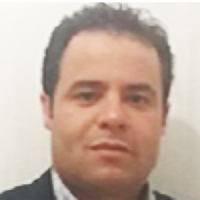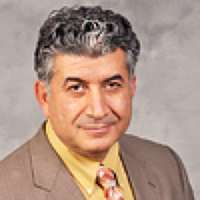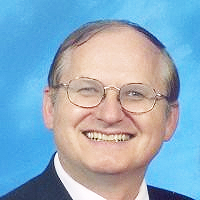Abstract
Research Article
The effect of cognitive strategies of association and dissociation on central nervous activation: A controlled trial with long distance runners
Oswaldo Rivera Rodríguez, Juan José Ramos Álvarez, Juan Carlos Segovia Martínez, Francisco Javier Lopez-Silvarrey Varela and Ricardo De la Vega Marcos*
Published: 11 October, 2017 | Volume 2 - Issue 4 | Pages: 095-108
The purpose of the present study was to experimentally assess the effect of cognitive strategies of association and dissociation while running on central nervous activation. A total of 30 long distance runners volunteered for the study. The study protocol consisted on three sessions (scheduled in three different days): (1) maximal incremental treadmill test, (2) associative task session, and (3) dissociative task session. The order of sessions 2 and 3 was counterbalanced. During sessions 2 and 3, participants performed a 55 min treadmill run at moderate intensity. Both, associative and dissociative tasks responses were monitoring and recording in real time through dynamic measure tools. Consequently, was possible to have an objective control of the attentional. Results showed a positive session (exercise+attentional task) effect for central nervous activation. The benefits of aerobic exercise at moderate intensity for the performance of self-regulation cognitive tasks are highlighted. The used methodology is proposed as a valid and dynamic option to study cognitions while running in order to overcome the retrospective approach.
Read Full Article HTML DOI: 10.29328/journal.jsmt.1001014 Cite this Article Read Full Article PDF
References
- Brick N, MacIntyre T, Campbell M. Attentional focus in endurance activity: new paradigms and future directions. International Review of Sport and Exercise Psychology. 2014; 7: 106-134. Ref.: https://goo.gl/Rt8zd9 s
- Connolly C, Tenenbaum G. Exertion-attention-flow linkage under different workloads. JASP. 2010; 40: 1123-1145. Ref.: https://goo.gl/mSbZY7
- Masters KS, Ogles BM. Associative and dissociative cognitive strategies in exercise and running: 20 years, what do we khow? TSP. 1998; 12: 273-270. Ref.: https://goo.gl/VvZL66
- Salmon P, Hanneman S. Harwood B. Associative/dissociative cognitive strategies in sustained physical activity: Literature review and proposal for a mindfulness-based conceptual model. TSP. 2010; l: 127-157. Ref.: https://goo.gl/f66FT6
- De la Vega R, Rivera O, Ruiz-Barquín R, Ramos JJ, Segovia JC. Does an internal focus really affect running performance? An experimental approach to the effect of attentional focus. CPD. 2016; 16: 77-86. Ref.: https://goo.gl/9QGjUC
- Audiffren M, André N. The strength model of self-control revisited: Linking acute and chronic effects of exercise on executive functions. JSHJ. 2015; 4: 30-46. Ref.: https://goo.gl/GFbwRT
- Brisswalter J, Collardeau M, Arcelin R. Effects of acute physical exercise characteristics on cognitive performance. Sports Medicine. 2002; 32: 555-566. Ref.: https://goo.gl/kag1ts
- Chmura J, Nazar K, Kaciuba-Uscilko H. Choice reaction time during graded exercise in relation to blood lactate and plasma catecholamine thresholds. IJSM. 1994; 15: 172-176. Ref.: https://goo.gl/Pb51Zr
- Davey CP. Physical exertion and mental performance. Ergonomics. 1973; 16: 595-599. Ref.: https://goo.gl/LHev3g
- Kamijo K, Nishihira Y, Higashiura T, Hatta A, Kaneda T, et al. Influence of exercise intensity on cognitive processing and arousal level in the central nervous system. Advances in Exercise & Sports Physiology. 2006; 12: 1-7. Ref.: https://goo.gl/S9Tizr
- Kashihara K, Maruyama T, Murota M, Nakahara Y. Possitive effects of acute and moderate physical exercise on cognitive function. JPA. 2009; 28: 155-164. Ref.: https://goo.gl/guC3bx
- Lambourne K, Tomporowski P. The effect of exercise-induced arousal on cognitive task performance: A metaregression analysis. Brain Research. 2010; 10: 12-24. Ref.: https://goo.gl/FDN99p
- McMorris T, Keen P. Effect of exercise on simple reaction times of recreational athletes. Perceptual and Motor Skills. 1994; 78: 123-130. Ref.: https://goo.gl/SRhShb
- Chan YK, Labban JD, Gapin JI, Etnier JL. The effects of acute exercise on cognitive performance: a meta-analysis. Brain Research. 2012; 1453: 87-101. Ref.: https://goo.gl/jkuL4Z
- Davranche K, Audiffren M. Facilitating effects of exercise on information processing. J Sports Sci. 2004; 22: 419-428. Ref.: https://goo.gl/ouc3ZQ
- Critchley HD, Corfield DR, Chandler MP, Mathias CJ, Dolan RJ. Cerebral correlates of autonomic cardiovascular arousal: a functional neuroimaging investigation in humans. J Physiol. 2000; 523: 259-270. Ref.: https://goo.gl/NNXRYF
- Davranche K, Pichon A. Critical Flicker Frequency Threshold Increment after an Exhausting Exercise. JSEP. 2005; 27: 515-520. Ref.: https://goo.gl/9fgBqQ
- Clemente VJ. Fatiga del Sistema nervioso mediante umbrales Flicker Fusion después de una prueba incremental máxima en ciclistas. J Sport Health Res. 2011; 3: 27-34. Ref.: https://goo.gl/pCAHBe
- Godefroy D, Rousseu C, Vercruyssen F, Cremieux J, Brisswalter J. Influence of physical exercise on perceptual response in aerobically trained subjects. Percept Mot Skills. 2002; 94: 68-70. Ref.: https://goo.gl/1g2pgD
- Ito S, Kanbayashi T, Takemura T, Kondo H, Inomata S, et al. Acute effects of zolpidem on daytime alertness, psychomotor and physical performance. Neurosci Res. 2007; 59: 309-313. Ref.: https://goo.gl/YmouvQ
- Clemente VJ, Martinez R. Fatiga del sistema nervioso mediante umbrales Flicker Fusion después de una prueba de ultraresistencia por relevos de 200 km. CCD. 2010; 5: 33-38.
- Li Z, Jiao K, Chen M, Wang C. Reducing the effects of driving fatigue with magnitopuncture stimulation. Accid Anal Prev. 2004; 36: 501-505. Ref.: https://goo.gl/EZbjes
- Presland J, Dowson S, Cairns S. Changes of motor drive, cortical arousal and perceived exertion following prolonged cycling to exhaustion. Eur J Appl Physiol. 2005; 95: 42-51. Ref.: https://goo.gl/wRmMQv
- Smith J, Misiak H. Critical flicker frequency (CFF) and psychotropic drugs in normal human subjects-a review. Psychopharmacologia. 1976; 47: 175-182. Ref.: https://goo.gl/TX1WKw
- Tomporowski P. Effects of acute bouts of exercise on cognition. Acta Psychol (Amst). 2003; 112: 297-324. Ref.: https://goo.gl/5n2y4X
- Bray S, Martin Ginis KA, Hicks A, Woodgate J. Effects of self-regulatory strength depletion on muscular performance and EMG activation. Psychophysiology. 2008; 45: 337-343. Ref.: https://goo.gl/j5zNjk
- Bray SR, Graham JD, Martin Ginis KA, Hicks A. Cognitive task performance causes impaired maximum force production in human hand flexor muscles. Biol Psychol. 2012; 89: 195-200. Ref.: https://goo.gl/3DNNzj
- Martin Ginis KA, Bray SR. Application of the limited strength model of self-regulation to understanding exercise effort, planning and adherence. Psychol Health. 2010; 25: 1147-1160. Ref.: https://goo.gl/c3cQeP
- Karoly P. Mechanisms of self-regulation:a systems view. Annu Rev Psychol. 1993; 44: 23-52. Ref.: https://goo.gl/EyQa9s
- Hagger MS, Wood C, Stiff C, Chatzisarantis NL. Ego depletion and the strength model of self-control: a meta-analysis. Psychol Bull. 2010; 136: 495-525. Ref.: https://goo.gl/K4FZJv
- Marcora SM, Staiano W, Manning V. Mental fatigue impairs physical performance in humans. J Appl Physiol. 2009; 106: 857-864. Ref.: https://goo.gl/qH1hBN
- MacMahon C, Schücker L, Hagemann N, Strauss B. Cognitive fatigue effects on physical performance during running. J Sport Exerc Psychol. 2014; 36: 375-381. Ref.: https://goo.gl/xGk8SP
- Pageaux B, Lepers R, Dietz KC, Marcora SM. Response inhibition impairs subsequent self-paced endurance performance. Eur J Appl Physiol. 2014; 114: 1095-1105. Ref.: https://goo.gl/aWng6B
- McEwan D, Martin Ginis KA, Bray SR. The effects of depleted self-control strength on skill-based task performance. J Sport Exerc Psychol. 2013; 35: 239-245. Ref.: https://goo.gl/JJ8APU
- Pageaux B, Marcora S, Rozand V, Lepers R. Mental fatigue induced by self-regulation does not exacerbate central fatigue during subsequent whole-body endurance exercise. Front Hum Neurosci. 2015; 9: 1-12. Ref.: https://goo.gl/yJAg6T
- Cárdenas D, Conde-Gonzáles J, Perales JC. La fatiga como estado motivacional subjetivo. Revista Andaluza de Medicina del Deporte. 2017; 10: 31-41. Ref.: https://goo.gl/FJ2dmd
- Dietrich A. Functional neuroanatomy of altered states of consciousness: the transient hypofrontality hypothesis. Conscious Cogn. 2003; 12: 231-256. Ref.: https://goo.gl/P3Y8sj
- Benyo R, Henderson J. Running Encyclopedia. The ultimate source fort today’s runner. Human Kinetics. 2002; 356.
- Görtelmeyer R, Wiemann H. Retest reliability and construct validity of critical Flicker Fusion Frequency. Pharmacopsychiatry. 1982; 15: 24-28. Ref.: https://goo.gl/SJ21ug
- Borg G. Perceived exertion and pain scale. Human Kinetics. 1998.
- Borg G. Psychophysical bases of perceived exertion. Med Sci Sports Exerc. 1982; 14: 377-381. Ref.: https://goo.gl/qjP1Jf
- Bolgar MR, Baker CE, Goss FL, Nagle E, Robertson RJ. Effect of exercise intensity on differentiated and undifferentiated ratings of perceived exertion during cycle and treadmill exercise in recreationally active and trained women. J Sports Sci Med. 2010; 9: 557-563. Ref.: https://goo.gl/3FbLx4
- Noble RJ, Robertson RJ. Perceived Exertion, Human Kinetics. Champaign. 1996; 77-81.
- MacLeod CM. Half a century of research on the Stroop effect: An integrative review. Psychol Bull. 1991; 109: 163-203. Ref.: https://goo.gl/5kU625
- Orr GW, Green HJ, Hughson RL, Bennett GW. A computer linear regression model to determine ventilator anaerobic threshold. J Appl Physiol Respir Environ Exerc Physiol. 1982; 52: 1349-1352. Ref.: https://goo.gl/g8dUkx
- Jones AM, Carter H. The effect of endurance training on parameters of aerobic fitness. Sports Med. 2000; 29: 373-386. Ref.: https://goo.gl/jJqK1L
- Tjelta LI, Enoksen E. Training volume and intensity. In J. Bangsbo & H. B. Larsen (Eds.). Institute of Exercise and Sports Sciences. 2001; 149-177. Ref.: https://goo.gl/bpBcTB
- Pageaux B, Marcora SM, Lepers R. Prolonged mental exertion does not alter neuro muscular function of the knee extensors. Med Sci Sports Exerc. 2013; 45: 2254-2264. Ref.: https://goo.gl/bJdzcP
- Davranche K, Burle B, Audiffren M, Hasbroucq T. Information processing during physical exercise: a chronometric and electromyographic study. Exp Brain Res. 2005; 165: 532-540. Ref.: https://goo.gl/59u5uH
- Davranche K, Burle B, Audiffren M, Hasbroucq T. Physical exercise facilitates motor processes in simple reaction time performance: An electromyographic analysis. Neurosci Lett. 2006; 396: 54-56. Ref.: https://goo.gl/1Eehgz
- KarenDavranche, JeanickBrisswalter, RémiRadel. Where are the limits of the effects of exercise intensity on cognitive control?. Journal of Sport and Health Science. 2015; 4: 56-63. Ref.: https://goo.gl/yuDpFX
- Yu-KaiChang, LinChi, Jennifer L. Etnier, Chun-ChihWang, Chien-HengChu, et al. Effect of acute aerobic exercise on cognitive performance: Role of cardiovascular fitness. Psychology of Sport and Exercise. 2014; 15: 464-470. Ref.: https://goo.gl/UG9vtJ
- Hüttermann S, Memmert D. Does the inverted-U function disappear in expert athletes? An analysis of the attentional behavior under physical exercise of athletes and non-athletes. Physiol and Behav. 2014; 131: 87-92. Ref.: https://goo.gl/E6EAkz
- Labelle V, Bosquet L, Mekary S, Bherer L. Decline in executive control during acute bouts of exercise as a function of exercise intensity and fitness level. Brain Cogn. 2013; 81: 10-17. Ref.: https://goo.gl/kP6Gus
- Dietrich A, Audiffren M. The reticular-activating hypofrontality (RAH) model of acute exercise. Neurosci Biobehav Rev. 2011; 35: 1305-1325. Ref.: https://goo.gl/y8ZwMs
- Langner R, Steinborn MB, Chatterjee A, Sturm W, Willmes K. Mental fatigue and temporal preparation in simple reaction time performance. Acta Psychol (Amst). 2010; 133: 64-72. Ref.: https://goo.gl/J1cKXd
- Helton WS, Warm JS. Signal salience and the mindlessness theory of Vigilance. Acta Psychol (Amst). 2008; 129: 18-25. Ref.: https://goo.gl/v2LZSw
- Tomei G, Cinti ME, Cerratti D, Fioravanti M. Attention, repetitive works, fatigue and stress. Ann Ig. 2006; 18: 417-429. Ref.: https://goo.gl/NZnrtX
- Morgan WP, Pollock ML. Psychologic characterization of the elite distance runner. Ann N Y Acad Sci. 1977; 301: 382-403. Ref.: Ref.: https://goo.gl/k5K4ka
- St Clair Gibson A, Baden DA, Lambert MI, Lambert EV, Harley YX, et al. The conscious perception of the sensation of fatigue. Sports Med. 2003; 33: 167-176. Ref.: https://goo.gl/XzSj1T
- Doherty M, Smith PM, Hughes MG, Collins D. Rating of perceived exertion during high-intensity treadmill running. Med Sci Sports Exerc. 2001; 33: 1953-1958. Ref.: https://goo.gl/8QPVkk
Figures:

Figure 1

Figure 2
Similar Articles
-
Physical activity can change the physiological and psychological circumstances during COVID-19 pandemic: A narrative reviewKhashayar Maroufi*. Physical activity can change the physiological and psychological circumstances during COVID-19 pandemic: A narrative review. . 2021 doi: 10.29328/journal.jsmt.1001051; 6: 001-007
-
‘Rotational alignment on patients’ clinical outcome of total knee arthroplasty: Distal femur axillary X-ray view to qualify rotation of the femoral componentS Magersky*. ‘Rotational alignment on patients’ clinical outcome of total knee arthroplasty: Distal femur axillary X-ray view to qualify rotation of the femoral component. . 2020 doi: 10.29328/journal.jsmt.1001050; 5: 008-011
-
Shoulder muscle weakness effects on muscle hardness around the shoulder joint and scapulaeKubota Atsushi*,Takayanagi Chiho,Kishimoto Kohei. Shoulder muscle weakness effects on muscle hardness around the shoulder joint and scapulae. . 2020 doi: 10.29328/journal.jsmt.1001049; 5: 001-007
-
Medical coverage of the 29th “Tour du Faso”Jean Marie Vianney Hope*,Abdoul Rahamane Cisse,Abdoulaye Ba. Medical coverage of the 29th “Tour du Faso”. . 2019 doi: 10.29328/journal.jsmt.1001040; 4: 038-042
-
Olfactory Dysfunction in Sports Players following Moderate and Severe Head Injury: A Possible Cut-off from Normality to PathologyGesualdo M Zucco*,Andrea Carletti,Richard J Stevenson. Olfactory Dysfunction in Sports Players following Moderate and Severe Head Injury: A Possible Cut-off from Normality to Pathology. . 2016 doi: 10.29328/journal.jsmt.1001001; 1: 001-005
-
Retrospective Analysis of Non-Contact ACL Injury Risk: A Case Series Review of Elite Female AthletesLee Herrington*,Ros Cooke. Retrospective Analysis of Non-Contact ACL Injury Risk: A Case Series Review of Elite Female Athletes. . 2017 doi: 10.29328/journal.jsmt.1001002; 2: 001-008
-
Translating an Evidence-Based Physical Activity Service From Context To Context: A Single Organizational Case StudyMarie-Eve Lamontagne,Kelly P Arbour-Nicitopoulos,Jennifer R Tomasone,Isabelle Cummings,Amy E Latimer-Cheung,François Routhier*. Translating an Evidence-Based Physical Activity Service From Context To Context: A Single Organizational Case Study. . 2017 doi: 10.29328/journal.jsmt.1001007; 2: 039-050
-
Effects of a short Cardiovascular Rehabilitation program in Hypertensive subjects: A Pilot StudyJuliana Bassalobre Carvalho Borges,Débora Tazinaffo Bueno,Monique Fernandes Peres,Ana Paula Aparecida Mantuani,Andréia Maria Silva,Giovane Galdino*. Effects of a short Cardiovascular Rehabilitation program in Hypertensive subjects: A Pilot Study. . 2017 doi: 10.29328/journal.jsmt.1001008; 2: 051-056
-
The Utility of Acupuncture in Sports Medicine: A Review of the Recent LiteratureMichael Malone*. The Utility of Acupuncture in Sports Medicine: A Review of the Recent Literature. . 2017 doi: 10.29328/journal.jsmt.1001004; 2: 020-027
-
Use of Hand Rehabilitation Board (Dominic’s Board) in Post Traumatic/Stroke Rehabilitation of the Upper LimbsDominic Essien,Christopher Ekpenyong*. Use of Hand Rehabilitation Board (Dominic’s Board) in Post Traumatic/Stroke Rehabilitation of the Upper Limbs. . 2017 doi: 10.29328/journal.jsmt.1001009; 2: 057-065
Recently Viewed
-
FITT-CORRECT: Updated dynamic and evidence-based principle of exercise prescriptionShambhu P Adhikari*,Jarugool Tretriluxana,Rubee Dev,Emily Eglitis,Nistha Shrestha,Cheryl Kerfeld6. FITT-CORRECT: Updated dynamic and evidence-based principle of exercise prescription. J Nov Physiother Rehabil. 2021: doi: 10.29328/journal.jnpr.1001039; 5: 005-009
-
Unusual cause of parietal thoracic pain: A case reportMohamed Labied*,Hayat Lhajoui,Najwa Touil,Omar Kacimi,Nabil Chikhaoui . Unusual cause of parietal thoracic pain: A case report. Arch Case Rep. 2020: doi: 10.29328/journal.acr.1001040; 4: 046-047
-
Zn2+ Ions-Immune Virucidal activities for children and adults with preventions against 2019-nCoV and COVID-19 infectionTsuneo Ishida*. Zn2+ Ions-Immune Virucidal activities for children and adults with preventions against 2019-nCoV and COVID-19 infection. J Child Adult Vaccines Immunol. 2020: doi: 10.29328/journal.jcavi.1001006; 4: 006-014
-
Exophthalmos Revealing a Spheno Temporo Orbital MeningiomaHassina S*, Krichene MA, Hazil Z, Bekkar B, Hasnaoui I, Robbana L, Bardi S, Akkanour Y, Serghini L, Abdallah EL. Exophthalmos Revealing a Spheno Temporo Orbital Meningioma. Int J Clin Exp Ophthalmol. 2024: doi: 10.29328/journal.ijceo.1001055; 8: 001-003
-
Unveiling the Impostor: Pulmonary Embolism Presenting as Pneumonia: A Case Report and Literature ReviewSaahil Kumar,Karuna Sree Alwa*,Mahesh Babu Vemuri,Anumola Gandhi Ganesh Gupta,Nuthan Vallapudasu,Sunitha Geddada. Unveiling the Impostor: Pulmonary Embolism Presenting as Pneumonia: A Case Report and Literature Review. J Pulmonol Respir Res. 2025: doi: 10.29328/journal.jprr.1001065; 9: 001-005
Most Viewed
-
Evaluation of Biostimulants Based on Recovered Protein Hydrolysates from Animal By-products as Plant Growth EnhancersH Pérez-Aguilar*, M Lacruz-Asaro, F Arán-Ais. Evaluation of Biostimulants Based on Recovered Protein Hydrolysates from Animal By-products as Plant Growth Enhancers. J Plant Sci Phytopathol. 2023 doi: 10.29328/journal.jpsp.1001104; 7: 042-047
-
Sinonasal Myxoma Extending into the Orbit in a 4-Year Old: A Case PresentationJulian A Purrinos*, Ramzi Younis. Sinonasal Myxoma Extending into the Orbit in a 4-Year Old: A Case Presentation. Arch Case Rep. 2024 doi: 10.29328/journal.acr.1001099; 8: 075-077
-
Feasibility study of magnetic sensing for detecting single-neuron action potentialsDenis Tonini,Kai Wu,Renata Saha,Jian-Ping Wang*. Feasibility study of magnetic sensing for detecting single-neuron action potentials. Ann Biomed Sci Eng. 2022 doi: 10.29328/journal.abse.1001018; 6: 019-029
-
Physical activity can change the physiological and psychological circumstances during COVID-19 pandemic: A narrative reviewKhashayar Maroufi*. Physical activity can change the physiological and psychological circumstances during COVID-19 pandemic: A narrative review. J Sports Med Ther. 2021 doi: 10.29328/journal.jsmt.1001051; 6: 001-007
-
Pediatric Dysgerminoma: Unveiling a Rare Ovarian TumorFaten Limaiem*, Khalil Saffar, Ahmed Halouani. Pediatric Dysgerminoma: Unveiling a Rare Ovarian Tumor. Arch Case Rep. 2024 doi: 10.29328/journal.acr.1001087; 8: 010-013

HSPI: We're glad you're here. Please click "create a new Query" if you are a new visitor to our website and need further information from us.
If you are already a member of our network and need to keep track of any developments regarding a question you have already submitted, click "take me to my Query."

























































































































































